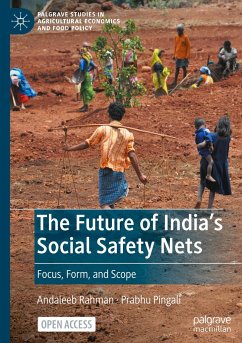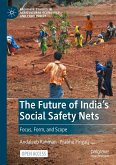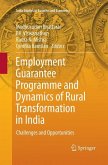India has learned what to do and what not to do when it comes to implementing policy to address human suffering. The COVID-19 pandemic unified the international response in similar ways, and the world has a lot to learn about key initiatives in India that have been implemented since India's independence. This open-access book includes key learnings about the conceptualization, design, and impact of social welfare programs in India spanning more than a 75-year period.
The Future of India's Social Safety Nets provides a comprehensive analysis of these systems by combining insights from a wealth of interdisciplinary scholarship on social protection, economic development, and social policy. It covers India's social development in terms of three essential aspects of policy design: focus (intended beneficiaries), form (transfer modalities), and scope (developmental objectives). Highlighting the developmental achievements and shortcomings of the myriad of social welfare schemes, this book proposes a framework to foster human resilience through social protection.
This is an open-access book.
The Future of India's Social Safety Nets provides a comprehensive analysis of these systems by combining insights from a wealth of interdisciplinary scholarship on social protection, economic development, and social policy. It covers India's social development in terms of three essential aspects of policy design: focus (intended beneficiaries), form (transfer modalities), and scope (developmental objectives). Highlighting the developmental achievements and shortcomings of the myriad of social welfare schemes, this book proposes a framework to foster human resilience through social protection.
This is an open-access book.
"Andaleeb Rehman and Prabhu Pingali's book, The Future of India's Safety Nets: Focus, Form and Scope promises a timely reimagining of India's social safety net system ... . The Future of India's Safety Nets offers a refreshing perspective. ... The Future of India's Safety Nets provides an invaluable overview of the literature on key flagship programmes, with thorough discussions of their shortcomings both in terms of their vision as well as administrative failures." (Kalyani Raghunathan, Indian Economic Review, Vol. 59 (1), 2024)








